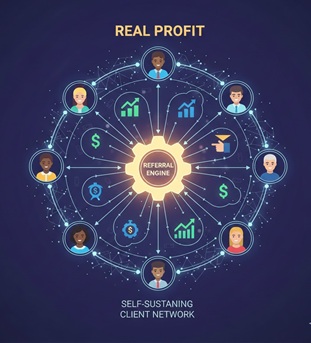Unlimited Industries, a San Francisco-based company pioneering an AI-native approach to large-scale construction, announced today it has successfully funded $12 million seed funding round. The investment, co-led by prominent venture capital firms Andreessen Horowitz and CIV, with participation from other leading industry angel investors, is set to accelerate the company’s expansion and further develop its proprietary platform that automates and optimizes infrastructure engineering and construction.
The United States is on the cusp of a new industrial boom, necessitating trillions of dollars in new infrastructure, including energy projects, advanced manufacturing facilities, data centers, and critical mineral plants. However, the current engineering and construction (E&C) industry is struggling to meet this demand. Projects are notoriously slow, expensive, and often fail to meet initial timelines and budgets.
Co-founder and CEO Alex Modon observed this stagnation firsthand. “Large construction projects are slower and more expensive today than they were half a century ago,” Modon stated. “The traditional construction model is slow, brittle, and fundamentally misaligned. It’s time we build the physical world the way we build software.”
Unlimited Industries was founded with the mission to reverse this trend. Unlike traditional firms that layer software onto legacy processes, Unlimited is an AI-native construction company that is vertically integrated, meaning it handles both the design and the build phase. This structure is designed to eliminate the costly handoffs, fragmented workflows, and misaligned incentives—like cost-plus contracts that often reward delays—that plague the industry.
The core of Unlimited Industries’ innovation lies in its proprietary AI platform. This system can generate and evaluate hundreds of thousands of design configurations in parallel, a feat impossible for human engineers in a comparable timeframe. It automatically identifies optimal layouts for cost, safety, and performance before construction begins, turning static design into a continuous, data-driven optimization process.
The results in the field have been immediate and transformative. On a recent industrial project, Unlimited’s approach reduced the time required for pre-construction engineering from six months to just a few weeks. In another instance, the platform explored tens of thousands of potential layouts and pinpointed an optimal design that reduced projected capital costs by over 50 percent.
Each project provides valuable data, making the system smarter and continually strengthening the underlying models and workflows.
The $12 million in seed funding will be deployed to scale the platform and expand the company’s vertically integrated engineering and construction teams. Unlimited Industries is focusing its immediate efforts on the most critical U.S. infrastructure needs: building power for data centers, critical mineral facilities, and advanced manufacturing.
The investors see Unlimited as a solution to a national urgency. Katherine Boyle, a General Partner at Andreessen Horowitz, remarked, “The engineering and construction industry has remained largely unchanged for decades. Unlimited’s vertically integrated, AI-first approach represents a paradigm shift, turning design and build into a rapid and continuous optimization problem. This is exactly the kind of innovation needed to restore America’s ability to build ambitious infrastructure at scale.”
Abhijoy Mitra, Co-founder & Managing Partner at CIV, echoed this sentiment, emphasizing the need to amplify the existing workforce’s impact with technology. “The only way to have our existing workforce meet this moment is to amplify their impact with the latest advancements in AI,” Mitra stated.
Unlimited’s broader vision is to create a future of radical physical abundance by automating construction end-to-end, making speed, adaptability, and efficiency the new standard for how major infrastructure gets built in America and beyond. The company, co-founded by Modon alongside Tara Viswanathan and Jordan Stern, who have a track record of scaling high-growth companies, is charting a course to turn industrial construction into an agile, software-driven process.
The funding round signifies a massive vote of confidence that artificial intelligence is the key to unlocking the next generation of industrial growth and solving the bottlenecks currently preventing the rapid, successful delivery of critical American infrastructure.
By: K. Tagura
Who we are: Funded.com is a platform that is A+ BBB accredited over 10+ years. Access our network of Angel Investors, Venture Capital or Lenders. Let us professionally write your Business Plan.











